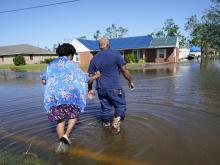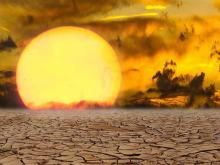Above-average hurricane season predicted as experts say climate change is creating stronger storms

The latest report on this year’s hurricane season predicts another above-average number of storms will form in the Atlantic Ocean.
Experts in North Carolina say the report comes as climate change is creating more powerful hurricanes, and making their behavior more dangerous as well.
One of the first reports on the 2022 hurricane season has been released by Colorado State University.
Researchers expect 19 named storms and four major hurricanes to form in the north Atlantic from June to November.
“They’re projecting a busy season again this year, one that looks a lot like last year and the year before,” Dr. Rick Luettich said.
The head of UNC’s Institute of Marine Sciences in Morehead City, Luettich is an expert on storm surge.
He told WRAL News that research has clearly shown climate change is creating stronger hurricanes.
“Definitely climate change is changing the characteristics of these hurricanes,” Luettich said.
He identified part of the problem as coming from the ocean itself.
Luettich said climate change has raised sea levels and made the water warmer, making flooding more prevalent and allowing hurricanes to form and strengthen faster.
“Warmer ocean, more energy, and stronger hurricanes,” Luettich said. “And so that’s a direct connection with climate change.”
But Luettich also told WRAL News that climate change has started to affect the way hurricanes behave.
Recent data showed on average, hurricanes have been getting slower and wetter.
That means storms are sitting longer over the areas in their path, letting them do more damage, as well as sending more rain and dangerous storm surge into communities.
“What tends to cause the most damage, the most loss of life, and the hardest to recover from is the water,” Luettich said.
Experts told WRAL News it was too early to tell how many of the predicted storms could impact North Carolina.
But Luettich also said the more storms that form in a season, the greater chance of one heading our way.
“It only takes one big storm to have a huge impact in an area,” he said. “Whatever the storm was 10 years ago, that brings it closer to the doorsteps of our coastal residents and means that the floodwaters will penetrate further inland and be deeper.”

